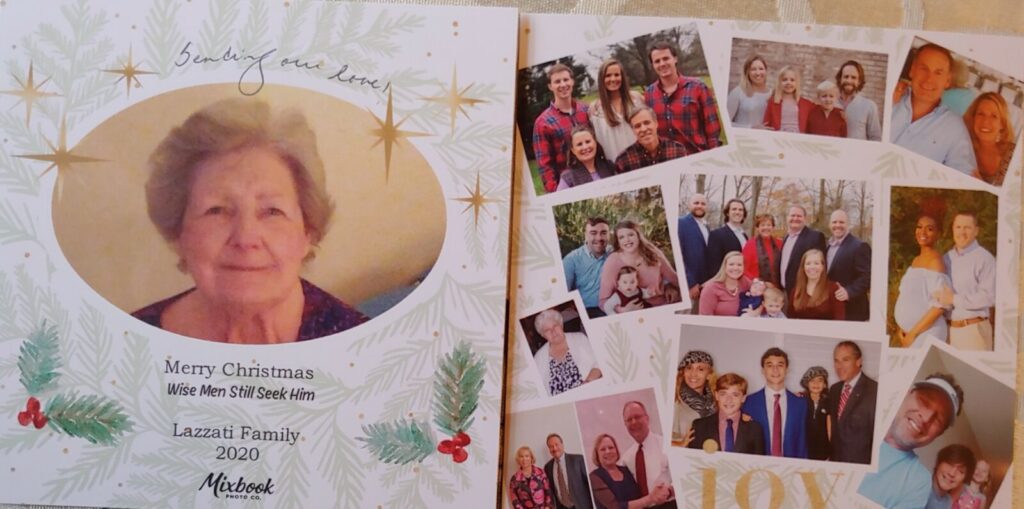
The Executor’s Duties Checklist
Serving as an executor is a significant responsibility that requires careful attention to legal, financial and administrative details to ensure a smooth probate process.
Call us Anytime
Laurel, MD 20707
Downs Law Firm, P.C.
Home • Blog

Serving as an executor is a significant responsibility that requires careful attention to legal, financial and administrative details to ensure a smooth probate process.
There are some common estate planning myths that you know: Your work isn’t done just because you have a will. There are many myths floating around about wills, trusts, and estate planning. Those myths can easily confuse people who haven’t taken the time to bust them before getting on to the real work … taking care of the family, according to the Cleveland Jewish News in “Estate planning myths common, but debunkable.” One common myth is that a trust is wholly creditor-protected. While some trusts achieve this goal, many don’t. It is easier to provide that to your beneficiaries than to yourself. Another myth is that once an estate plan is completed, there’s no need to revisit or make changes. We look at the planning you put in place as an ongoing rough draft. Perhaps the biggest myth around estate plans is that they are only needed by wealthy people. Everyone needs a will. A property power of attorney can save your loved ones thousands of dollars and massive aggravation. People chat with their friends and neighbors and pick up snippets of often incorrect information. As with any story, once a piece of information has moved through a few different people, it becomes confusing, even if it started accurately. The value of such “Street lawyers” is usually what you pay for it. Unless it comes from an estate planning attorney, don’t get legal advice at a neighborhood or family gathering. The results can be disastrous. If you think having a trust alone is enough to prevent your heirs from having to pay any taxes, your kids will be in for a big and expensive mistake. The court will appoint a guardian if you don’t set up guardianship for your minor children. It may be a person you would never have wanted to raise your children. If a separate financial trustee is not named, there won’t be any checks and balances on how the money left for your children is spent. If you don’t have an estate plan, especially if your family includes minor children, make an appointment to speak with an estate planning attorney who can advise you on an estate plan that fits your unique circumstances. Reference: Cleveland Jewish News (Sep. 20, 2018) “Estate planning myths common, but debunkable”

Navigating the process of managing a parent’s estate requires understanding your legal responsibilities and the steps to settle their affairs.
Business owner estate planning: if you don’t plan, the government will gladly distribute your assets. Years ago, a friend of mine told me of his final moments with his father. He was in the hospital signing documents with the lawyer and his father. Dad was on his deathbed, dying several hours later. The family business went to him, as he had worked in it for over two decades. It was what he had been promised all along, but he did not make the final time with his Dad as he would have wanted. If that hadn’t happened, state law would have controlled, leaving promises unkept. Dying intestate will result in your state of residence deciding where your assets will go. However, it doesn’t have to be like that because creating an estate plan will leave the decision in your hands, according to KREM.com in “Head off a small-business skirmish: Draw up your will or estate plan today.” Here’s a tale from another law office that makes it all very clear. What happens to a business owner’s estate when they die? If he had never completed his divorce from his first wife after 20 years, he would have been in a relationship with another woman for 10 years, and they would have had two children together. Since he never divorced his wife, she would have inherited his business. No one likes to consider that they will die, or in this case, that it is time to deal with their marital status. He probably thought he had plenty of time to plan. However, the result was not pretty. Here’s how you can avoid your unintended consequence: Preplan. A business owner’s estate plan should be thorough, so your property, family, and business will be protected if you should become incapacitated or die. You’ll need the following: Disability insurance is a relatively affordable product that replaces up to 60% of your income if injury or illness prevents you from working. Life insurance. Consider the cost of providing food, shelter, education, and care for your family. How would that be replaced if you died tomorrow? Life insurance can also keep a business alive after the owner dies. Proceeds can be earmarked in your estate plan to meet business costs and spare your loved ones from selling the business for a low amount because they need to raise funds fast. Create a succession plan. How will your business go forward without you? Have your documents prepared. Hire an estate planning attorney who can protect your business and your family. Here’s what you’ll need: A will and/or a trust. You need a will, especially if you have small children. This is because you’ll want to name guardians for them. A will does go through probate. A valuation of the business for itself may far exceed the cost of keeping it out of court with a trust. Your estate planning attorney will create a plan that fits your needs. Health care directives. If you are unable to make

Eventually, most older couples will face health crises and the need for caregiving. If they haven’t vowed their mutual marital commitment ‘til death us do part,’ their roles and responsibilities can be murky.

Traditions Can Define Us As we round the corner for Christmas, I wanted to share a few thoughts on a longstanding Holiday Tradition that has been part of my life for the last 42 years: The Lazzati Christmas Card. My in-laws, Jimmy and Rosemary Lazzati, started a tradition of a family Christmas Card in 1955 that has now spanned 69 years. They eventually had ten children: “Jimmy, Virginia, Mary, Dodie, Joanie, Margie, Joey, Johnny, Philip, and Paul,” often said as one word, like the alphabet. I entered the picture, literally, in 1982, after Margie and I were married. At that time, between 1500 and 2000 cards were mailed a year. As I went to events in Baltimore thereafter, I became vaguely familiar with more and more people. The annual fall migration to take the picture has become increasingly challenging. It can be difficult to pick a date to gather that would work for everyone, or at least as many as possible. However, the gathering afterward was like another Thanksgiving (if it wasn’t already Thanksgiving). The day of the picture is less frantic for us than it once was, as our children are adults. Prepping all the outfits for the little children and keeping their attention on the photographer caused some tense moments for us. Carrying forward a Christmas Tradition is a unique obligation and expectation. Ask Tevye, Tradition connects and binds us. Our matriarch, Rosemary, died in 2022, and our Father-in-law, Jimmy, died in 2007. We have carried on with an effort of 70 years. It is a chance for the family to gather, laugh, and remember, which seems especially fitting in November. We have forged on. We have also lost siblings Joan and John since then—today’s remaining children, along with accumulated spouses, significant others, and grandchildren, total 39. Brother Jimmy sends a large set of cards to relatives in Italy and visits them yearly, keeping the Christmas tradition of the card and its many family connections active. As an estate planning attorney, I work with people to review their lives and what matters to them. In the end, for most people I talk to, life all comes down to their relationships. The Good, the Bad, and the Ugly go there when people are involved. When I look at these past Christmas Cards at one time, it is a bittersweet walk down memory lane, reminding me undeniably of my aging and the joy of our family’s growth and changes. This year, those who could gathered together last weekend to take the picture. That presented its own challenges to carrying on our tradition, but better done than perfect. This year, we collected pictures. Those with conflicting schedules can submit them to be included on a collective family card. I am sure you have your own holiday tradition (Christmas or another holiday that you celebrate), your version of the Lazzati Christmas Card, seeped in good and bad memories, and that is ultimately about relationships. Your traditions will require adjustments as time marches on.

My mobile phone has gone from a convenience to a headache, with many unwanted calls flooding in, to a point where I don’t answer calls from someone I don’t know from the caller ID. Here are 10 Tips to hold back the tidal wave:

By carefully considering what to include in your estate plan—and what to leave out—you can help your family avoid unnecessary conflict and heartache.
Taking Social Security while still working, may sound like a good way to boost your income while you prepare for your impending retirement, but this strategy can have unexpected costs.

Murdoch’s succession plan sheds light on whether an irrevocable trust can truly be changed, revealing key insights for estate planning.